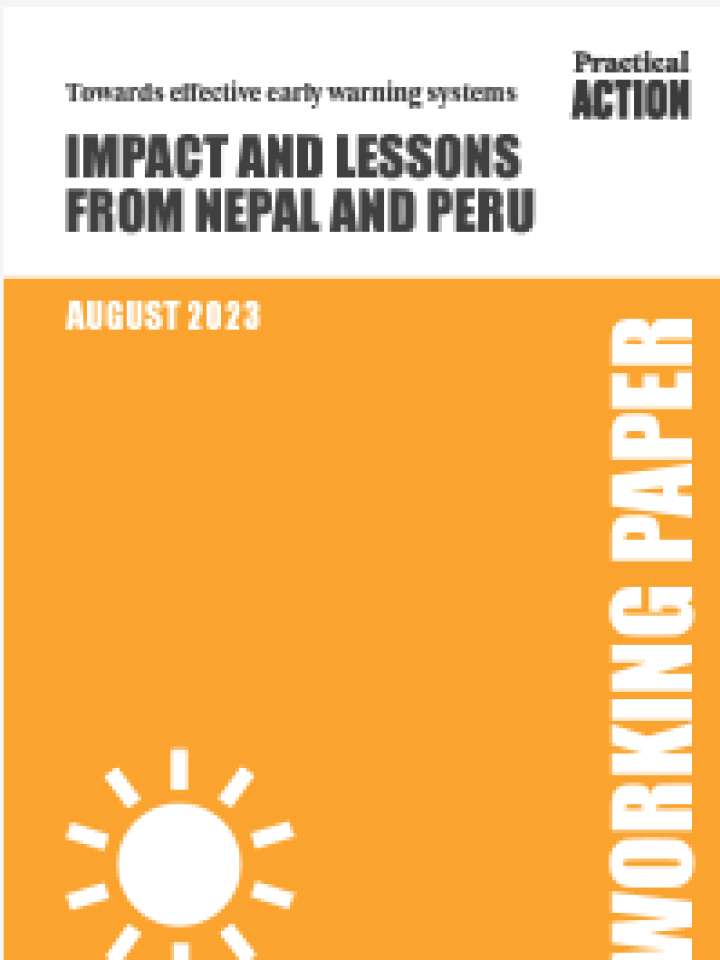Towards effective early warning systems: Impact and lessons from Nepal and Peru
The report presents findings from Practical Action's commissioned assessment to better understand the impact of our people-centred early warning system (EWS) programming in Nepal and Peru. The evidence gained is intended to inform and shape future policy and practice of EWS programming globally. Effective EWS are an essential service for protecting the lives and livelihoods of vulnerable communities at the front line of climate change.
Recommendations from the report include:
- Recognize that people face increasing risks from multiple hazards, which are exacerbated by climate change. Governments have a challenging and difficult responsibility to protect their citizens with EWS that address multiple hazards rather than single hazards and that are designed for longevity in the face of a changing climate.
- Work with local communities. Practitioners should work as facilitators to utilize local knowledge and strengths, building people’s agency and providing support when there are gaps. They should actively recognize and work with differences within the community to ensure that EWS are designed to be suitable for all those at risk, not just the majority.
- Address social inequalities through an intersectional approach to all EWS programming.This includes going beyond binary considerations of gender, and being intentional and strategic from the beginning when designing EWS.
- Bridge the gap between local needs and government mandates with a view to building sustainability, achieving scale, and improving capacity in governmental duty bearers.
- Integrate EWS within a wider disaster risk reduction and management strategy, recognizing the implications of climate change on communities at risk and harnessing the opportunities that EWS provide as vehicles for wider social change.
Explore further
